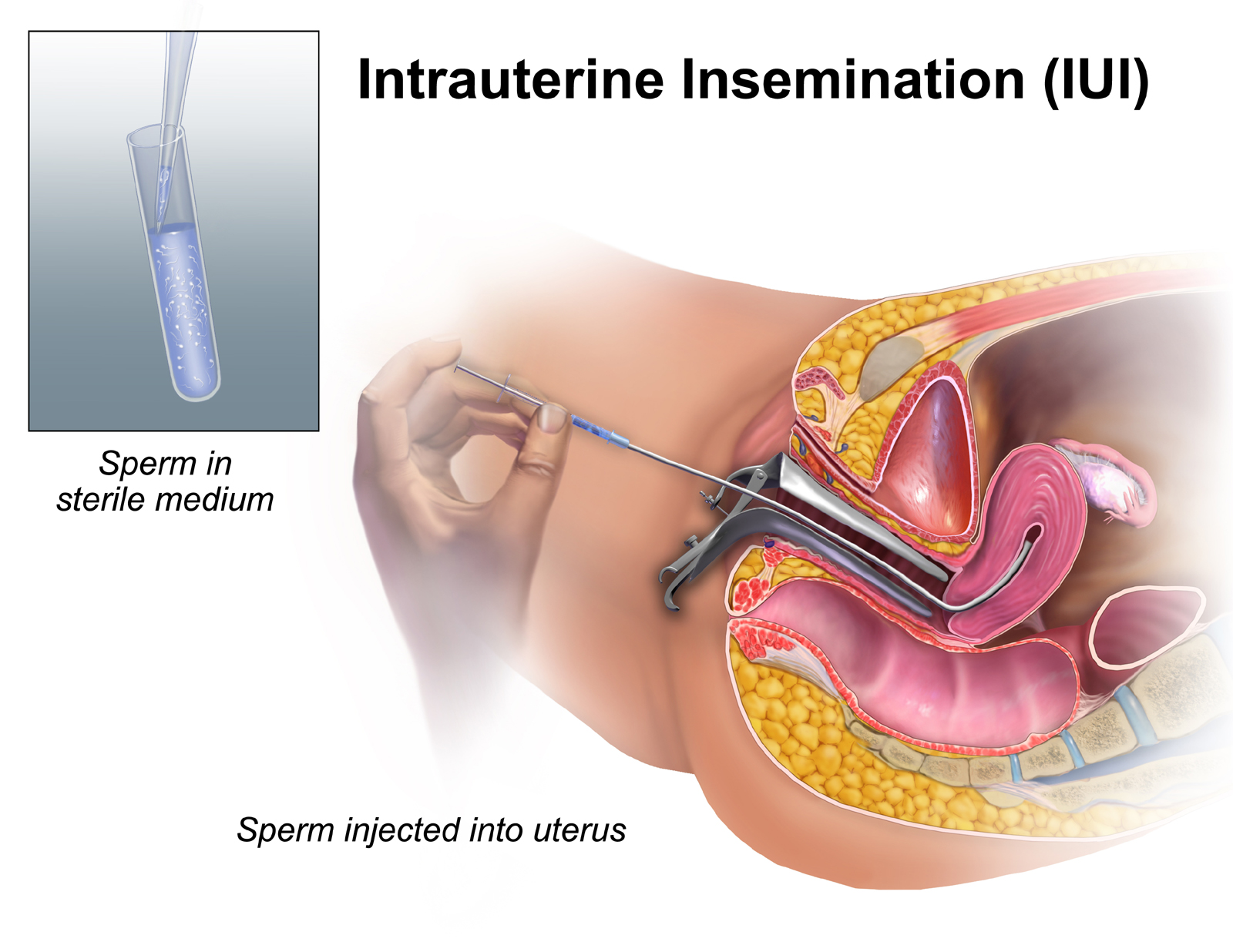Overview
UI is a type of artificial insemination in which sperms are injected directly into your uterine cavity near the time of ovulation. This procedure can be performed either with your partner’s sperm or with sperm from a donor.
How does it work?
IUI is considered the first line treatment for unexplained infertility, mild endometriosis, or mild male factor infertility. In general, IUI does two things: medication taken before the injection help stimulate the growth of eggs, making a woman more fertile than she would be without the medication. Then, via the injection, the sperm is placed inside the uterine cavity, avoiding to have two swims through the cervical opening and into the uterus on its own, allowing it to meet the egg more easily.


